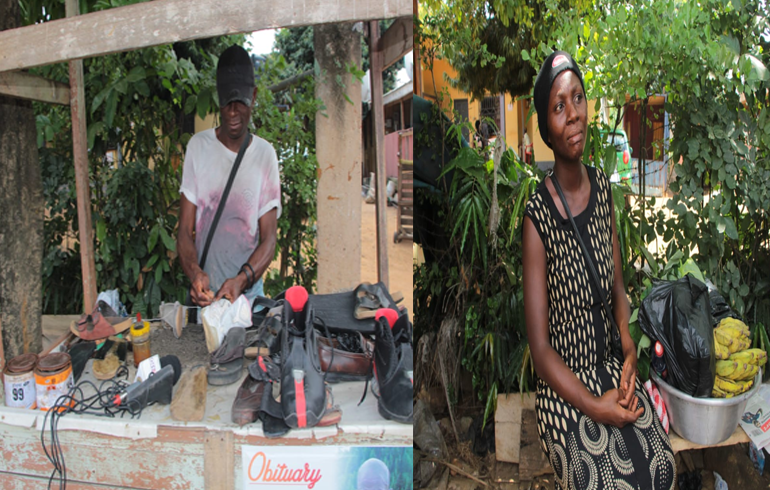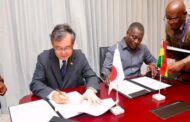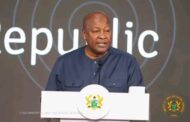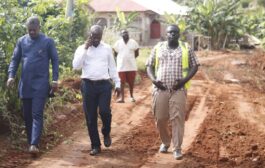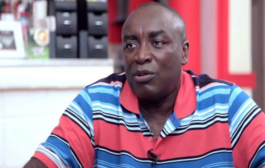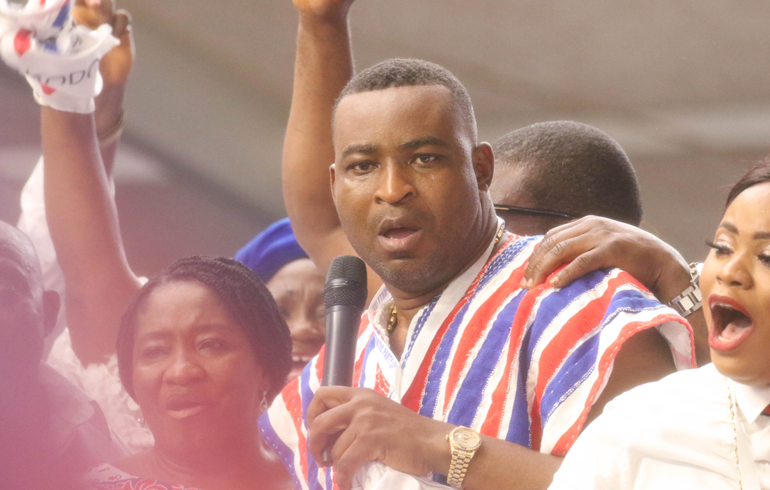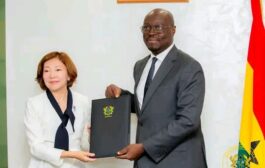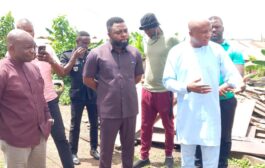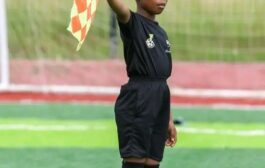For several months now, Ghana’s economy has continued to shrink with the government blaming it on a number of factors including COVID-19 & the war in Ukraine.
The standard of living has dropped with many complaining dailies about how incessant fuel price increases have affected the pricing of goods and services.
But have you thought about how persons with disabilities are coping in these hard times?
Journalist, Obed Kojo Ansah tells the double whammy struggling story of over 400,000 Ghanaians with hearing impairment using the Eastern region as a case study.
Nii Aryee Ayiteh, a hearing-impaired trader, has been selling second-hand footwear in Koforidua for several years.
This is what has kept his family of five going, as the economic struggles worsen.
Aside from his existing challenge of communication with his customers who do not understand sign language, he now has to deal with a gradual loss of his capital as the cost of goods keeps increasing.
“We are not happy with the economic hardship in this country. Many people are suffering from poverty. The increased cost of living is too much. Transportation, so many things are all up. I travel to buy shoes and come and sell but because of the high cost of transportation, I can’t even travel so the cost of living is affecting me so much. When I even buy them and bring them to sell people don’t buy because people don’t have money so doesn’t make a profit out of his business at all,” Aryee Ayiteh lamented through an interpreter.
Nii Aryee is not the only hearing-impaired person caught up in the financial crisis.
Near the Koforidua NIB Bank, is where another hearing-impaired person, Adu Afro, plies his trade as a cobbler.
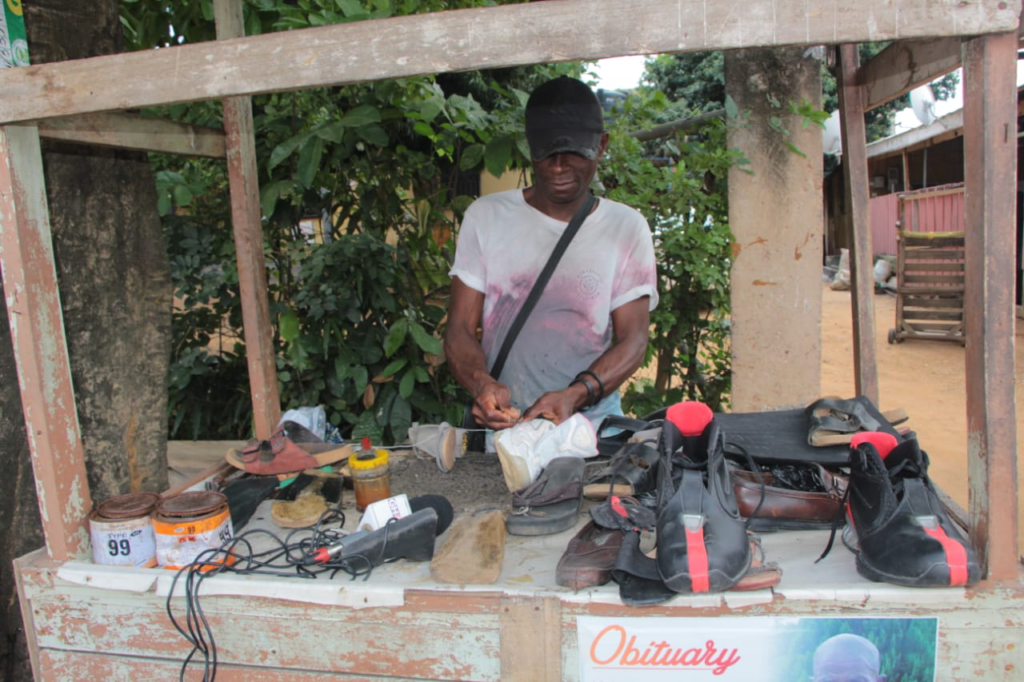
The rising cost of materials for his work is making it almost impossible to make profits as sales have completely dropped.
“The cost of materials and substances used for mending shoes have increased.so I am unable to buy enough for my work. I buy it pieces. whatever I get I deduct transportation then use the little left to buy food to eat ” He said
Adu’s customers, out of frustration, are reportedly always arguing with him over price changes.
Yaw Akuako, popularly known as Apae, who operates a shop near Adu Afro is a witness to the arguments and confrontations with his customers.
It sometimes gets unpleasant, as communication remains a major hurdle in his business.
“The customers sometimes argue with him because he has increased his charges to enable him to stay in the business. He said the prices of materials are high now so not making any profit”.
According to the 2021 Population and Housing Census, 8 per cent of the Ghanaian population is living with a disability which translates to 2,098,138 (2 million and ninety-eight thousand, one hundred and thirty-eight).
Out of this,470,737 have some degree of hearing loss.
The United Nations estimates that 80 to 90% of the hearing impaired population in developing countries are unemployed.
This compounds the situation for these hearing impaired persons who have to pay extra to live comfortably in the country.
Another Hearing Impaired, Isaiah Bentil, works with a sachet water company and tied the knot last year.
He says life has become very unbearable for him.
Isaiah spoke through an interpreter [Maxwell Lartey] that, “he is not happy at all about how the government is managing the economy. Life is now hard. He is not happy at all. The economy is very very bad. He works with one pure water company. Many people buy water from them but recently things have changed so the government should think about how to improve the economy if not people are suffering. Life is becoming so difficult”Isaiah Bentil
A married impaired woman said “The economy is now difficult. Which way can we get money or get employment.No one feels okay everything is difficult. We wish that some people can help the hearing impaired”
Cecilia Abrokwa Danso was spotted resting under a tree with some items in a polythene bag behind her.
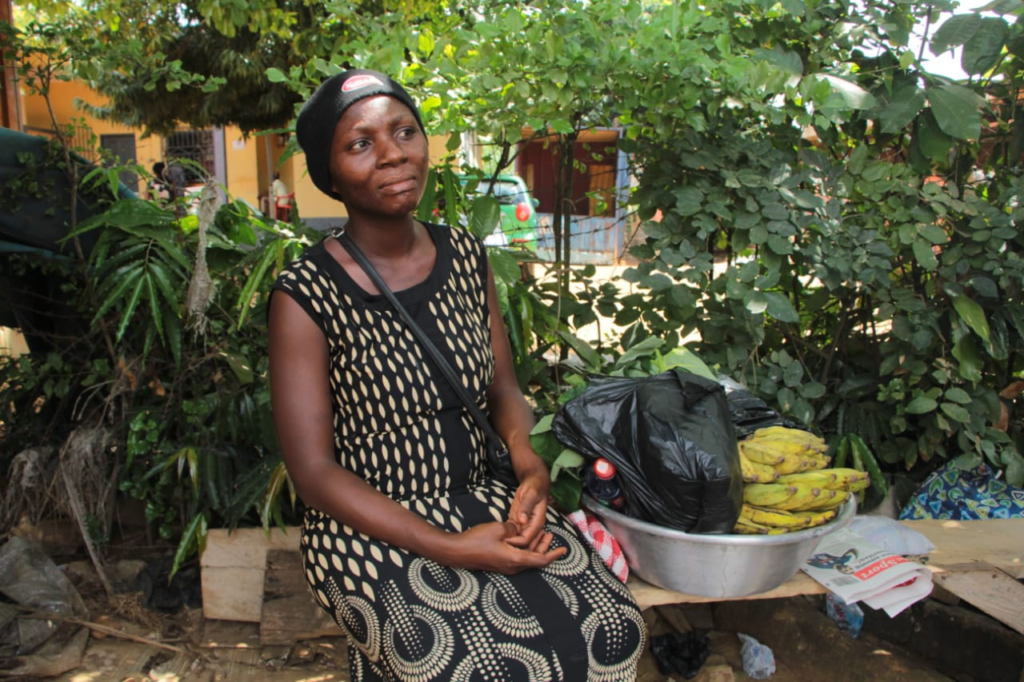
Apparently, the hearing impaired has returned from the market. She went to buy some foodstuff to prepare meals for her family but lamented that prices of food have increased and hence could not buy the quantity needed.
“Prices of food at the market have increased. It wasn’t like this previously. We are suffering. The economy is hard. So the foodstuff that I bought, I will manage it well. The government must reduce prices”.she said through an interpreter
Some other hearing-impaired persons who were present at the Central Tabernacle of the church of Pentecost, where a special service is held for the hearing impaired want the government to find a solution to the economic crises.
David Asante Agyei, the presiding Elder of the MPDWs at the Church of Pentecost appealed to Government to support efforts by the Church, to support persons with disabilities, especially in these difficult times considering that majority are unemployed.
“The government must step up in terms of caring for the Disables. We see the church of Pentecost employing persons with disability. So as the Church is moving this way we entreat the government to actually come because the church cannot do all. Disable people they also cast votes (I don’t want to sound political). The Minister responsible for women, children and social protection intervenes because most of these people do Kayaye “.
Ghana is a signatory to the UN convention of the Right to Persons with Disabilities.
Additionally, the country has passed The Disability Act 2006 (Act 716).
Section 9 of the Act enjoins the Ministry of Women, children and social protection in collaboration with government agencies to create employment opportunities for PWDs and provide interventions for social support, but that really remains in the books.
Very little, however, is done in this regard.
Daniel Agyekum The Eastern Regional Chairman of the Ghana Federation of the Disability Organizations (GFDO) said the allocation to the disability fund is woefully inadequate and hence called for an increment.
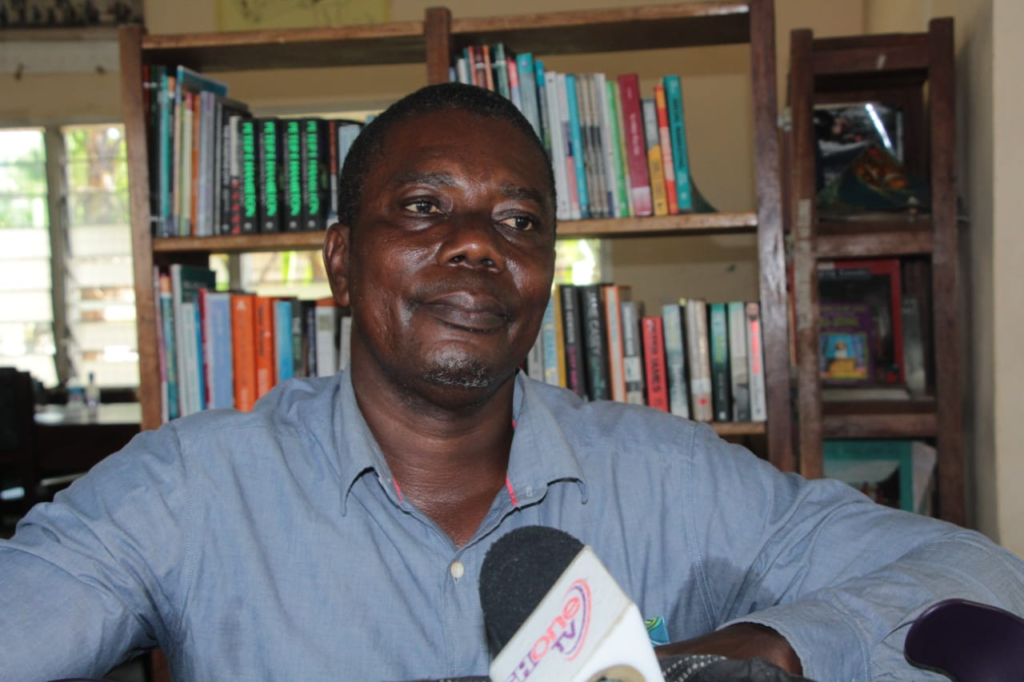
Living with any form of disability in this part of the world is expensive as social support remains low for PWDs.
Many stakeholders, therefore, believe that As the country’s inflation rises, coupled with an economic crisis, the burden for PWDs will remain high until steps are taken to provide them with some special support in these times.
Source: Mybrytnewsroom.com/Obed Kojo Annor Ansah



